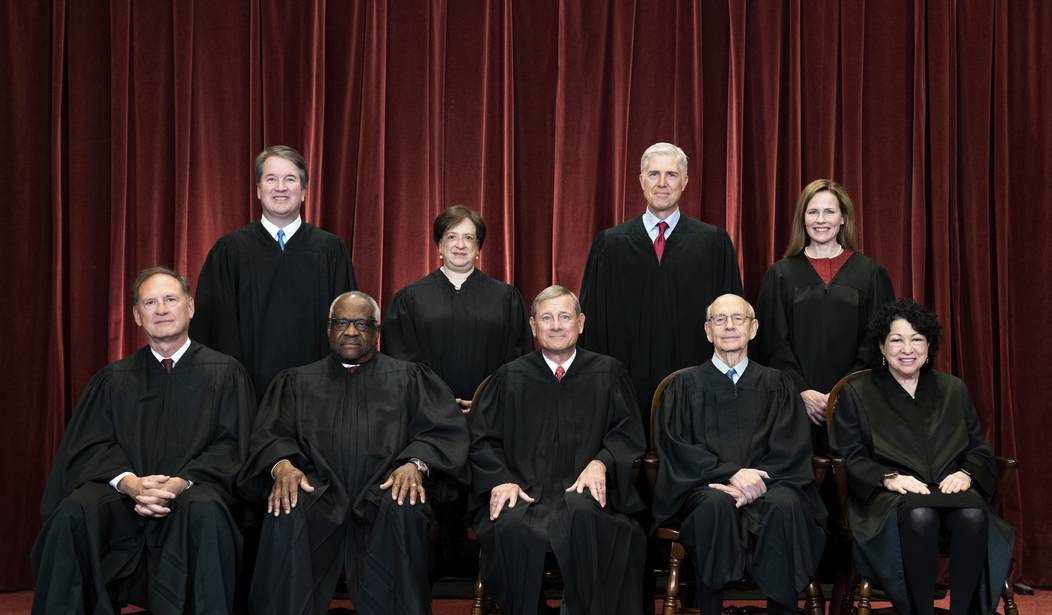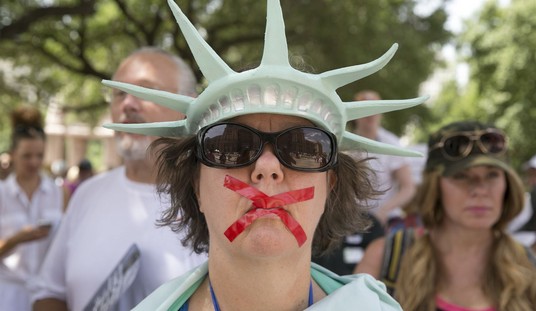Gun control activists may be putting on a brave front, but if they were honest I think most of them would admit that they’re not going to be pleased with what the Supreme Court has to say about New York’s carry laws when it issues its decision in New York State Rifle & Pistol Association. But ahead of Wednesday’s oral arguments there are plenty of anti-gunners trying to make one last case to uphold New York’s laws, including Rich Cowles, a “volunteer writer” for Moms Demand Action who says if the Supreme Court wants to prove that it’s a nonpartisan institution it must rule in New York’s favor.
Honoring precedent (stare decisis) is a long-standing tradition that defers to prior opinions. In 2008, the conservative-leaning Supreme Court established new precedent in Second Amendment interpretation when it ruled, for the first time since the Second Amendment’s ratification in 1791, that the amendment grants individuals the right to own guns unrelated to service in a militia (The District of Columbia v. Heller). Ponder that. It wasn’t until 13 years ago that the right to bear arms was interpreted as an unfettered individual right apart from the need for national security, as referred to in the Second Amendment — “A well regulated Militia, being necessary to the security of a free State, the right of the people to keep and bear Arms, shall not be infringed.”
Gun control activists are really trying hard to put that lie out there, but as we previously pointed out, they’re simply wrong. Justice Antonin Scalia himself wrote in the Heller decision that it was entirely in line with previous Supreme Court decisions.
None of the Court’s precedents forecloses the Court’s interpretation. Neither United States v. Cruikshank, 92 U. S. 542, 553, nor Presser v. Illinois, 116 U. S. 252, 264–265, refutes the individual rights interpretation.
United States v. Miller, 307 U. S. 174, does not limit the right to keep and bear arms to militia purposes, but rather limits the type of weapon to which the right applies to those used by the militia, i.e., those in common use for lawful purposes.
So, honoring precedent in this case means recognizing that the right to keep and bear arms is an individual right, and a fundamentally important one as well.
But Cowles doesn’t rest his argument solely on his flawed take regarding Supreme Court Second Amendment jurisprudence. He also tosses out the idea of “judicial restraint.”
The conservative adherence to judicial restraint rests on the belief that justices appointed for life should properly have a limited view of the judiciary’s role, resisting the urge to tamper with the slow-germinating fruit of the more democratic legislative branch of government. This belief decries “judicial activism,” often referred to as “legislating from the bench,” to enact a political agenda. Or, as the influential conservative Federalist Society puts it, “it is emphatically the province and duty of the judiciary to say what the law is, not what it should be.”
Will the court’s conservative jurists be able to detach from the politics of gun rights and honor the precedent set by Heller’s unequivocal opinion that government may regulate guns? Might the court’s originalists find that Heller deviated from original meaning and injected a modern-day political concern for individual rights? Could they even revert to an interpretation more in concert with two centuries of understanding of the amendment’s original meaning than that of the past 13 years since Heller, correcting what conservative former Justice John Paul Stevens called “the worst self-inflicted wound in the Court’s history?”
Or will the court set aside these conservative judicial principles and further deviate from long-standing precedent, violating the Federalist Society’s “province and duty of the judiciary,” and expand gun-owning rights? Will it somehow discover new (yet original) meaning in the framers’ words that elevates individual rights over the interests of the state? Will it, in blatant judicial activism fashion, align Second Amendment interpretation with current right-wing politics, further tying state and local governments’ hands in protecting citizens from gun violence?
Will the Court find “new meaning” in the words “the right of the People to keep and bear arms shall not be infringed”? I doubt it, because there’s never been a Supreme Court decision that declared that right to be non-existent. Instead, we’ve had courts like the Ninth Circuit declare that the right to keep and bear arms doesn’t protect the right to carry a firearm either openly or concealed; turning the plain language of the Second Amendment on its head.
It wouldn’t be an act of nonpartisanship for the five (and sometimes six) members of the right wing of the court to adopt the left wing’s point of view. It would be nonsensical. If Cowles was really serious about wanting to see a nonpartisan decision, he’d be urging the three “progressive” justices (I have to put that word in quote because there’s nothing progressive about declaring that an enumerated right doesn’t actually exist) to recognize that clear text, history, and tradition of the right to bear arms in the United States, including the fact that there are currently more than 20-million Americans with their concealed carry license, are enough evidence to conclude that New York’s gun laws cannot withstand constitutional scrutiny.
But Cowles isn’t a volunteer writer for Moms Demand a Nonpartisan Court. He’s a gun control activist, and he’ll deploy whatever tortured logic he can muster to argue that New York should continue to deprive the average citizen of their right to carry and put thousands of people in prison for the “violent felony” of doing so without a government-issued permission slip. I would argue that both the Constitution and conscience compel the Court to reject Cowles’ argument and to overturn New York’s carry permitting scheme.










Join the conversation as a VIP Member